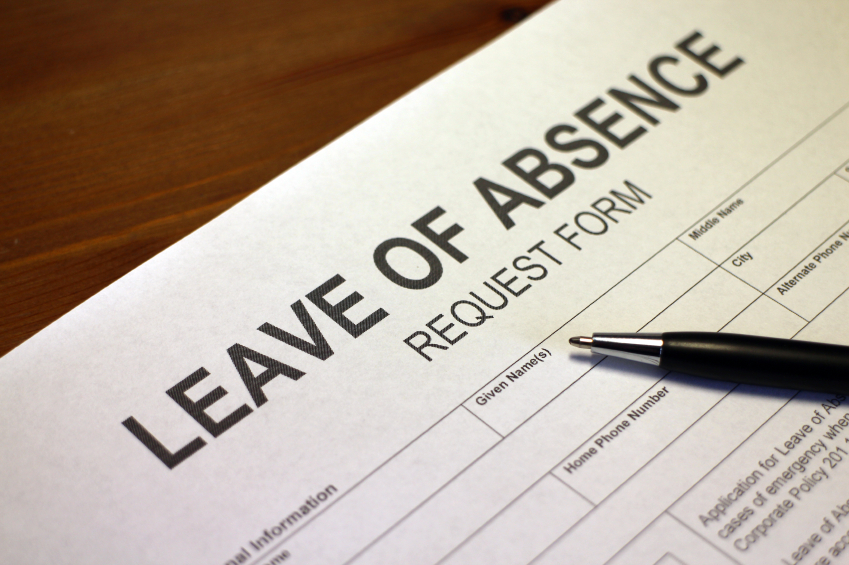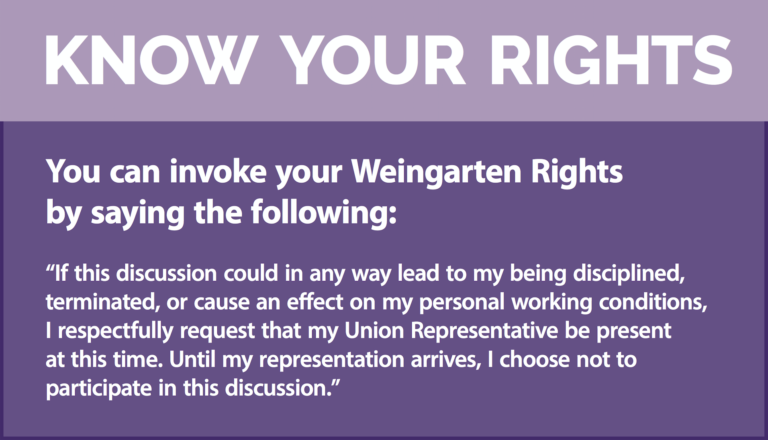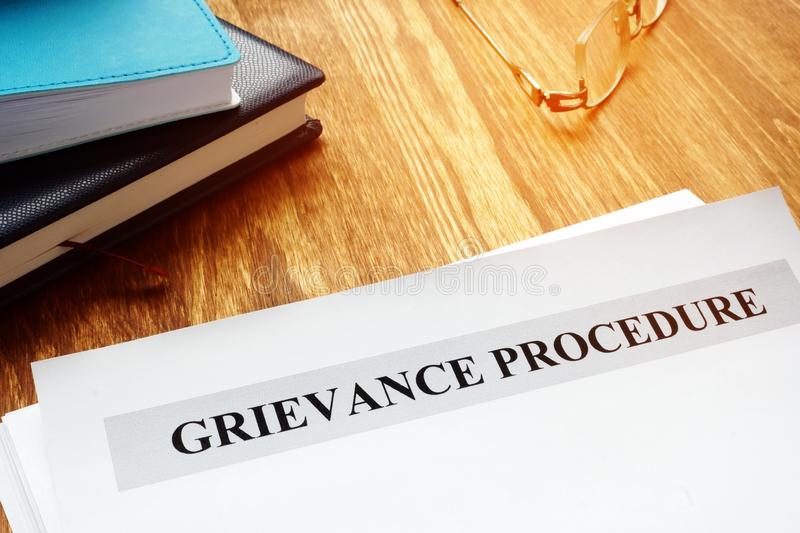Frequently Asked Questions
FAQ Topics
Check out the links below for information on a variety of frequently asked questions. If you do not see answers to your questions, please do not hesitate to contact the union office by clicking the button below.
Time Off
What if you need to take some time off?
Extended Leave of Absence
What if you want or need to take an extended leave of absence?
Parental Leave
Expecting a new addition? What do you need to know?
Ed Eval
How do educator evaluations work?
Professional Teacher Status
What is Professional Teacher Status, and why does it matter?
Prep Time and Duties
What do I need to know about prep time and duties?
Supervisor Issues
What do you do if you are called in for a meeting with your supervisor?
Filing Grievances
What are Grievances? When are they appropriate to file, and what is the process?
Retirement & Pension Questions
Can you explain the basics regarding an educator’s retirement and pension?
Getting Involved
How can I become more involved with the QEA?

What if you need to take some time off?
Occasionally, you may need to take time off. The QEA has negotiated provisions in your contract to provide for such occasions. The following information briefly outlines some of the time off for which you eligible.
Each year, you are credited with 15 sick leave days. Unused sick leave days accumulate from year to year. If you are ill beyond the 15 days, you can use your accumulated days. If you run out of sick leave days, the QEA negotiated on Extended Sick Leave Plan. The Plan requires that you must be out for 30 consecutive days. Thereafter, you can receive 2/3 pay until you return or the end of the school year, whichever comes first.
If you are ill, call the designated contact person the nigh before or the morning of your absence. You DO NOT need to provide details of the nature of your illness. A simple, “I’m calling in sick for tomorrow” will suffice.
*Read Article X (Sick Leave) on page 20 of your contract for more details. If you have any questions or problems with sick leave use, contact either your building rep or the QEA office.
You may use your sick leave days for illness or accidents in your immediate family. To take this leave, use the same procedure that you use to call in sick.
*See Article X on page 20 of your contract for details.
Personal Leave is available to attend to personal, legal, business, household, or family matters that require absence during school hours. This leave is described in Article XII on page 22 of your contract.
During each school year, you are entitled to two such personal days. Under normal circumstances, one day’s notice should be provided. To take a personal day, fill out the form in the principal’s office. You DO NOT need to specify your reason for taking this personal day. The request to use a personal day is sufficient.
Except in emergency situations, which are authorized by the Superintendent or his designee, you may not use a personal leave day 3 days before and/or three days after a vacation period. If you need special permission from the Superintendent to take a personal day before or after a holiday, you will need to specify your reason. Whether or not you receive permission to use your personal day for those circumstances is up to the discretion of the Superintendent or his designee.
At the end of each contract year, up to two of each member’s unused personal days shall be converted into sick days and rolled into your cumulative sick day account.
One day each year may be taken for a religious holy day when your religious beliefs require absence from work or a conflict with the school day. Two additional days may be taken as either personal or sick days. An additional two days may be taken with pay minus a substitute’s pay.
You need to apply for these days through the Superintendent’s office at least one week in advance of when you need them.
*For more details, read Article XI, paragraph B, on page 22 of your contract.
If there is a death in your immediate family, you are entitled to time off with pay. You are entitled to up to five days of leave with pay during the school year each time there is a death of any of the following:
- your mother/father
- your sibling
- your child
- your spouse
- your mother/father-in-law
Any of the five (5) days in excess of three (3) will be charged to your sick leave.
You are also allowed up to one (1) day of leave with pay during the school year each time there is a death of a grandparent, grandparent-in-law, or a grandchild.
For a death of a family member other than the “immediate” family members listed above, you may request a 1 day absence with pay at the discretion of the Superintendent.
If there are extenuating circumstances necessitating additional bereavement leave, like lengthy travel to attend services, the Superintendent may grant additional paid bereavement leave.
*For more details on this benefit, see Article XI, paragraph A, on pages 21-22 of your contract.
Although the contract addresses most situations that may require your absence from work, we can’t anticipate every possibility. If you need time off and you can’t find a provision in the contract to address your needs, contact your QEA building representative.
*Note: The articles and page numbers referenced on this page are based on the Unit A contract document. Though the information and page numbers will be similar for other other units, please consult your individual contracts for exact information relative to your particular unit.

What if you want or need to take an extended leave of absence?
Some members find that they need to take more than the few days provided by the sick leave and personal leave sections of the contract. For those cases, the QEA has negotiated extended leases of absence.
Examples of some of available leaves include:
- Parental Leave
- Extended Bedside Care Leave
- Sabbatical Leave
- Military Leave
- Public Office Leave
- Exchange Program Leave
- Service Leaves (e.g., Peace Corps, Vista, etc.)
- Extended Medical Leave
- Alternative Career Exploration Leave
- QEA/MTA/NEA Office Leave
Eligibility for these leaves differs from case to case and for many situations, special requests can be made to the Superintendent.
*Read Article XIII, XIV, and XV on pages 23-27 for more details regarding specific types of leaves.
*Note: The articles and page numbers referenced on this page are based on the Unit A contract document. Though the information and page numbers will be similar for other other units, please consult your individual contracts for exact information relative to your particular unit.

Best wishes from all of your colleagues in the QEA.
Enjoy your baby (and your leave)!
Expecting a new addition? What do you need to know?
CONGRATULATIONS!
For this most joyous event, the QEA has put together this FAQ sheet to help you understand the options that are available to you regarding leaves of absence and compensation. Obviously we could not anticipate all of the questions and variables that may occur. If you still have questions after reading this, contact your QEA building representative.
What rights do you have?
Parental leaves of absence come from three sources-federal law, state law, and the QEA contract. Each has different requirements for eligibility, and each provides different benefits. You must design a parental leave that suits your situation.
What does our new contract say?
QPS does not provide any paid parental leave as a separate benefit. However, our new contract provides an avenue for all parents to use accrued sick leave up to 12 weeks (i.e., 60 school days) IF the member has the accrued sick time. Members in their first three years may borrow against future sick time earnings up to 10 days for the first new family member.
Please refer to Article XIII on pages 23-24 of the contract for more details.
Article XV, No. 4 of the the contract allows teachers with professional teacher status to take up to two years of parental leave (without pay) depending upon the timing. Note the following:
- If you leave during the school year, you may take the remainder of the school year off to return in September or you may elect to return the following September.
- If you give birth in the summer, you may take the entire school year off to return the following September.
- The contract DOES NOT give you the right to return mid-year; however, in the past, some have asked, and the administration has allowed it on a case-by-case basis.
- The contract does not specify any minimum notice requirement for a contractual parental leave; however, courtesy should be extended to allow for a suitable replacement teacher.
If a member is medically excluded from work beyond the allotted 12-week FMLA leave, the District should permit access to accrued sick time with the appropriate medical documentation.
There is a simple timetable for requesting parental leave, and it is as follows:
- Determine what kind of leave you wish to take. Do you want to have the baby, stay at home for 6/8/12 weeks and return to work, OR do you want to take the rest of the year off? The following year as well?
- Although you will be writing your letter to request a leave a month or two before the new arrival, it makes sense to let your supervisor know earlier. Most simply inform your supervisor of your plans informally and verbally. No one likes to be the “last one to know” when arrangements need to be made.
- Three months or so before the new arrival, write a draft letter using the samples provided below.
- Submit your letter when you are certain of your plans, keeping in mind the time limits required by the relevant law or the contract. Keep a copy of all correspondences for your records.
- Shortly before the big event, ask your physician or pediatrician to write your parental leave letter.
*CLICK HERE FOR SAMPLE LETTERS.
From the MCAD website:
“The Pregnant Workers Fairness Act (“the Act”) amends the current statute prohibiting discrimination in employment, G.L. c. 151B, §4, enforced by the Massachusetts Commission Against Discrimination (MCAD).
The Act, which goes into effect on April 1, 2018, expressly prohibits employment discrimination on the basis of pregnancy and pregnancy-related conditions, such as lactation or the need to express breast milk for a nursing child. It also describes employers’ obligations to employees that are pregnant or lactating and the protections these employees are entitled to receive. Generally, employers may not treat employees or job applicants less favorably than other employees based on pregnancy or pregnancy-related conditions and have an obligation to accommodate pregnant workers. “
For more information, click HERE.
Is there anything else you should know?
Here are just a few more details that may/may not apply to your situation:
- While you are on PAID parental leave, you will continue to accrue seniority under the Reduction in Force article of the contract. Unpaid leaves do not count as time worked, but you will not lose previously earned seniority time.
- If you are a member of a City of Quincy medical insurance plan, you will maintain your portion of healthcare costs during your unpaid leave of absence.
- Remember the date March 1st!!! When you take a contractual parental leave during the school year, you have the option of returning the next September or the following September. You are required to notify the Superintendent prior to March 1st regarding when you intend to return. If you take parental leave between March 1st and the close of the school year, you must state your intent to return in your letter of application.
- The FMLA and the MMLL apply to adoption as well.
- If you have any other questions, contact your QEA building rep or Gayle Carvalho at president.qea@gmail.com.
*Note: The articles and page numbers referenced on this page are based on the Unit A contract document. Though the information and page numbers will be similar for other other units, please consult your individual contracts for exact information relative to your particular unit.

How do educator evaluations work?
Every teacher is evaluated. You will be evaluated annually in each of your first three years. When you have achieved PTS, you will be formally evaluated less frequently and you will have options.
Most would agree that evaluation is more stressful during your pre-PTS years because you are subject to review for rehiring each year. However, knowing what is actually expected of you and how the evaluation process works can help to ease some of that stress and anxiety.
Click HERE for a copy of the Ed Eval Contract.
Unit C Administrators-Non-teaching Principals and Citywide and High School Department Chairs, and Special Education Team Administrators all have new rubrics that will be posted soon.
*Note: The articles and page numbers referenced on this page are based on the Unit A contract document. Though the information and page numbers will be similar for other other units, please consult your individual contracts for exact information relative to your particular unit.

What is Professional Teacher Status, and why does it matter?
Professional Teacher Status (PTS) is a legal term. Prior to 1993, PTS was referred to as “tenure.” It refers to the protection that is afforded to a teacher generally after completing three consecutive school years of teaching in a particular school system.
The PTS law (Mass. Gen. Laws Chapter 71, Section 41) states, in part:
“(A)teacher, school librarian, school adjustment counselor, school social worker, or school psychologist who has served in the public schools of a school district for the three previous consecutive school years shall be considered a teacher, and shall be entitled to professional teacher status…”
A teacher who has attained PTS who is dismissed and wishes to challenge his/her dismissal may file for final and binding arbitration of the case. A single arbitrator is appointed to hear the case, and if the arbitrator decides that the decision was without just cause, (s)he may put the teacher back to work.
A teacher without PTS may be dismissed or non-renewed at the end of any school year with no requirement for the employer to even state a reason for the non-renewal. Further, under most circumstances, the non-renewed teacher has no recourse to challenge the decision. For this reason, your first three years are critical in your teaching career.
Some teachers without PTS have experienced problems involving:
- performance evaluation.
- personality conflicts with administrators.
- incidents with students and/or parents.
Given the potential impact of such situations upon your career, we strongly urge you to seek advice and counsel from QEA at the first sign of a potential problem.
*Note: The articles and page numbers referenced on this page are based on the Unit A contract document. Though the information and page numbers will be similar for other other units, please consult your individual contracts for exact information relative to your particular unit.

What do I need to know about prep time and duties?
In general:
- Members at the high school and middle school level (except school nurses) have at least five (5) preparation periods scheduled in each week.
- In addition, high school and middle school members are also assigned duties by the principal of his/her respective school. The number of duties depends on the schedule of the building.
- School nurses at the middle and high school level shall have at least 150 minutes of prep time each week, scheduled in blocks of not less than 30 minutes, not less than five times a week.
- Guidance counselors at the high school level shall have 135 minutes of prep time per week, scheduled in blocks of not less than 45 minutes, not less than three times per week.
- Middle school guidance counselors shall have 120 minutes, scheduled in blocks of not less than 30 minutes, no less than 4 times a week.
- School-related services providers shall have at least 150 minutes of preparation time each week in blocks of not less than 30 minutes.
- Effective for the SY 2024-2025: Middle school special education teachers who teach three or more academic classes will be provided with 120 minutes of additional prep time each month during the contractual day.
- If you have lost your prep time and/or lunch, first ask your administrator or principal to remedy the loss of time; however, if they cannot or will not, please email the QEA Grievance Chair at prandr.qea@gmail.com, and explain the time, date, and circumstances surrounding this loss.
*For more in-depth information about the conditions of your professional service, see Article VI, A, pages 10-14, of the contract.
In general:
- Members at the elementary school level (except school nurses) shall have a guaranteed minimum of 720 minutes on average in a normal four-week period; such preparation time shall be inclusive of the first, third, and fifth early-release afternoons. Prep and planning time is usually determined by the individual teacher. Periods of instruction in Physical Education, Music, Media and Art (i.e., the Specials) should be considered as planning periods for elementary members. In the event an elementary specialist is absent, every reasonable effort shall be made by the administration to hire a substitute teacher.
- Members at the elementary level will be allowed the first, third and fifth Wednesday afternoons each month for preparation and planning and will not be required to attend other meetings on those afternoons.
- Elementary school nurses have 120 minutes of prep time each week in blocks of not less than 30 minutes, four times a week.
- Elementary guidance counselors shall have 90 minutes of prep time each week in blocks of not less than 30 minutes, 3 times a week.
- School-related services providers shall have at least 150 minutes of preparation time each week in blocks of not less than 30 minutes.
- If you have lost your prep time and/or lunch, first ask your administrator or principal to remedy the loss of time; however, if they cannot or will not, please email the QEA Grievance Chair at prandr.qea@gmail.com, and explain the time, date, and circumstances surrounding this loss.
*For more in-depth information about the conditions of your professional service, see Article VI, A, pages 10-14, of the contract.
*Note: The articles and page numbers referenced on this page are based on the Unit A contract document. Though the information and page numbers will be similar for other other units, please consult your individual contracts for exact information relative to your particular unit.

What do you do if you are called in for a meeting with your supervisor?

If you know the reason for the meeting, and it is non-threatening, there is no problem. However, if you suspect that there may be a problem, call your QEA building rep. In a case that was decided by the U.S. Supreme Court in 1975 (N.L.R.B. vs. J. Weingarten, Inc.), employees were found to be entitled to union representation in any meeting in which you reasonably believe that disciplinary action might result.
The key words are “reasonably believe that disciplinary action might result.” The nature of the meeting might involve the following:
- an investigation to explore whether or not you were involved in misconduct or wrongdoing.
- a meeting in which the supervisor intends to reprimand you for misconduct or wrongdoing.
If a meeting starts like a friendly chat between you and your principal or supervisor and it takes a turn into an injury or accusation of wrongdoing, respectfully interrupt and state:
“I am uncomfortable with the turn this meeting has taken, and I would like my union rep to be present.”
At this point, the meeting should stop pending the attendance of your faculty rep. If your supervisor insists on continuing the meeting and denies you union representation, do not leave. Ride out the now illegal meeting by saying as a little as possible and immediately contact Gayle Carvalho, QEA President, at (857) 939-7429.
Please note: The employer is NOT required to inform you of our right to union representation as in the case of Miranda rights in a criminal matter. YOU MUST ASK FOR REPRESENTATION!!!
*Note: The articles and page numbers referenced on this page are based on the Unit A contract document. Though the information and page numbers will be similar for other other units, please consult your individual contracts for exact information relative to your particular unit.

What are Grievances? When are they appropriate to file, and what is the process?
In general, a grievance is a formal claim by an employee that an employer is violating the terms of a working contract.
According to the Unit A contract:
A grievance is a violation or misinterpretation or misapplication of any of the express provisions of this Agreement. A grievance may be brought by a member or group of members. Hereafter, all references to person, teacher, or employee shall be considered to mean member or group of members.
Not all workplace complaints merit filing a grievance. The employer’s directive needs to clearly violate the terms of contract. If you are unsure whether or not your complaint is grievable, please contact either your building rep or the union office.
(*The following information is borrowed and adapted from the MTA building rep manual.)
- It is important to remember this rule: COMPLY FIRST, THEN GRIEVE.
Sometimes this rule of “COMPLY, then grieve” can cause a problem. For example, an employee may be ordered to ride a bus home with a group of children. The contract might be clear in excluding that kind of one-time order. The supervisor may be very wiling to say later, “I promise I’ll never do it again. I was wrong.” However, the employee still had to ride the bus.
What can be done?
This kind of flagrant contract violation can be corrected by being creative in the relief asked. The grieving employee might ask for one-and-a-half times the hourly prorated rate of pay, or for compensatory time, which could be taken at the employee’s discretion. Most arbitrators will not make the supervisor suffer punishment, but are receptive to other forms of creative relief.
The one exception to this rule is where the supervisor orders the employee to do something which is injurious to the health or physical safety (e.g., search lockers for bombs). In such cases, you can refuse to carry out the order.
- Generally, the employee should first inform his/her supervisor that the terms of contract have been violated. If this does not result in a solution to the problem, the employee (or building rep) should inform the supervisor that there be a grievance.
- Grievances need to adhere to specific timeline and leveling parameters that are outlined in the contract.
*Please see Article IV, pages 5-7 for the complete detailing of those parameters.
*Note: The articles and page numbers referenced on this page are based on the Unit A contract document. Though the information and page numbers will be similar for other other units, please consult your individual contracts for exact information relative to your particular unit.

Can you explain the basics regarding an educator’s retirement and pension?
Retirement may be decades away but you are now a member of the Massachusetts Teachers’ Retirement System (MTRS), and you have some understanding about where your money is going and how you will benefit from being a member.
Here are some commonly asked questions and answers regarding retirement/pensions:
A: 11% of your pay is deducted for retirement.
A: Your money goes into the Massachusetts Teacher Retirement System. It is a huge fund (approximately $24 billion) that is invested in a variety of places–stocks, funds, real estate, etc. Although the fund grows with the economy, your account is usually credited at a rate of between 1% and 3% each year.
A: This might seem a paltry amount, but the pension system is not a savings account. The MTRS is a defined benefit plan. This means that regardless of how the fund has done over the years, your benefit will not be affected. Your benefit will be determined by three factors: 1.) your three highest consecutive years of salary 2.) your age at retirement 3.) your years of service (referred to as creditable service).
The bottom line–the maximum retirement benefit is 80% of your three highest consecutive years. You can calculate your benefit at the Massachusetts Teachers’ Retirement Board (MTRB) website.
A: The MTRS is a statewide plan. Moving from community to community does not affect your membership.
A: If you move out of state send resume teaching there, you should contact the retirement board in the new location about the best way to have your funds and time credited in the new system. It will differ from state to state.
A: If you leave teaching before the age of 55, you may withdraw our contributions plus interest. Before you take that step, we urge you to think long and hard about the following:
- Is it possible that I may return to teaching or other state or municipal employment in the future?
- Where will this money best work for me?
Contact the Massachusetts Teachers’ Retirement Board to get up-to-date information on withdrawing your funds and consult a financial advisor.
A: Not necessarily. Obviously the answer to this question depends on your lifestyle and financial needs. Consider enhancing your MTRS plan with one of the many tax-sheltered investment plans for which you are eligible. These are referred to as 403(B) and 457 plans (which is the public service employee version of a 401K).
*Please note: These are just a few names of companies that offer tax-sheltered plans. There are many, many others; some are even local people. Be sure to research before investing and ask other teachers.
*Note: The articles and page numbers referenced on this page are based on the Unit A contract document. Though the information and page numbers will be similar for other other units, please consult your individual contracts for exact information relative to your particular unit.

How Can I get More involved with the QEA
Unions are only as strong as the member involvement. The union isn’t the union leadership; the union is YOU collectively. Unions are one of the most important ways that the common worker can fight for fair and equitable working conditions, so it is so important that union members get involved so that their union is strong and effective.
There are many ways that span a broad range of commitment levels for members to become more actively engaged. Here are a just a few to consider:
This is a great way to facilitate communication and informational flow to your colleagues in your building. There are several rep positions currently open in various buildings. Rep Council meets once a month on the fourth Tuesday of the month in Quincy High School’s café.
The nomination process for the Executive Board opens in early April, and closes April 30th. The time commitment varies according to the position and its requirement.
Join the Contract Action Team and attend meetings (currently Monday nights via Zoom).
Attending School Committee meetings or contacting SC members directly helps you to be more informed about what is going on, but it also helps the School Committee to be more directly engaged with their educators so that they are hearing more perspectives regarding district needs.
Following us on social media helps you to stay informed about QEA related information and action; reposting relevant information to your own social media accounts helps to inform and educate those in your sphere of influence.
One of the easiest ways for you to be more active right from your computer is to respond to QEA surveys so that we can hear your voice as part of the collective. Responding to one-off calls to action requires little time commitment (as it is not ongoing) but can make a big difference in the moment.
Send in content and suggestions for this website if you think it would help your fellow unit members.
We’re open to feedback and suggestions!
For more information about any of these opportunities, email Gayle Carvalho at president.qea@gmail.com.










